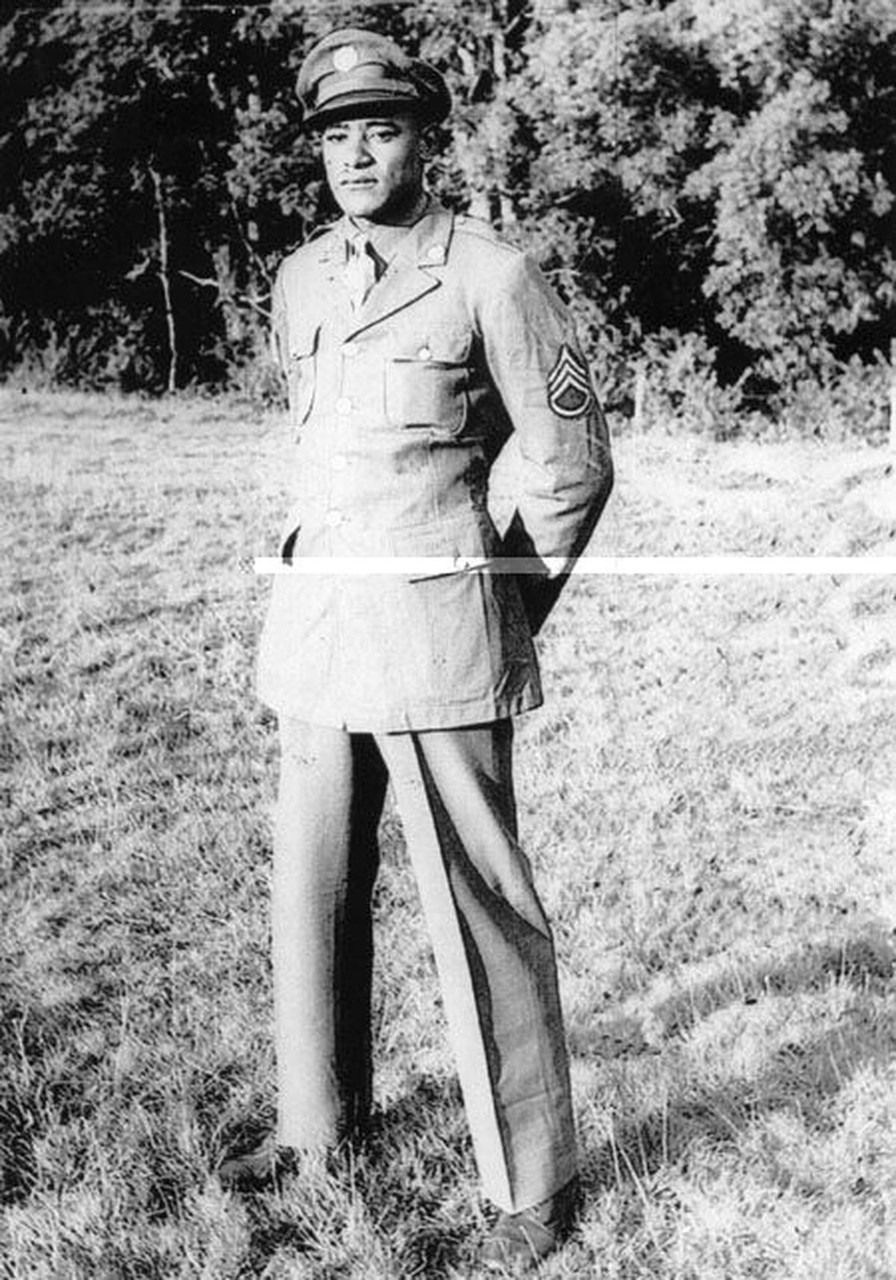As a member of the 761st Tank Battalion, Sergeant Ruben Rivers arrived at Omaha Beach in France on 10 October 1944. Here, his unit became part of General George Patton’s 3rd Army. Rivers was 26 years old and known for his bravery. On 19 November he led a peloton of Sherman tanks to the occupied village Guébling. Arriving in the village under enemy fire, Rivers’ tank struck an anti-tank mine. Despite having an open bone fracture on his leg, he refused any morphine the medical team tried to give him.
Soon after, he even took command of another thank. Over the following days Rivers fought without morphine and with a swollen and infected leg. On 19 November, the Black Panthers again tried to break through the lines at Guébling, but German troops were waiting with anti-tank guns. Rivers ordered his tank to get out of cover and to attack the enemy so that his comrades could retreat. His plan worked, but Rivers’ tank was blown up.
Rivers’ actions were an example for the entire 761st Tank Battalion. After the war, like many other African-American soldiers, he did not gain the recognition he deserved. It wasn’t until 1997 that President Bill Clinton awarded his family his Medal of Honour. Rivers is one of only seven African-Americans to be awarded the Medal of Honour for his actions during the Second World War.
